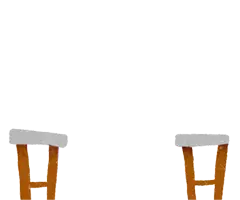Part 2Powers and duties of local authorities
Nuisances
33Proceedings in respect of nuisances
All proceedings under this Act in respect of nuisances shall be heard and determined by the District Court presided over by a District Court Judge alone.
The court, if satisfied that a nuisance exists on the premises, or that, though abated, it is likely to recur, may by order—
- require the owner and the occupier to abate the nuisance effectively:
- prohibit the recurrence of the nuisance:
- both require the abatement and prohibit the recurrence of the nuisance:
- specify the works to be done in order to abate the nuisance or prevent its recurrence, and the time within which they shall be done.
If the court is of opinion that by reason of the nuisance any dwelling or other building is unfit for human occupation, it may, by the same or any subsequent order, prohibit the use thereof for that purpose until the nuisance has been effectively abated to its satisfaction, or until provision has been made to its satisfaction to prevent the recurrence of the nuisance.
Any order made under subsection (3) may be rescinded by the court when it is satisfied that the nuisance has been effectively abated, or, as the case may be, that due provision has been made to prevent its recurrence; but until the order is rescinded it shall not be lawful to let or occupy the house or building to which the order relates.
Every person commits an offence against this Act who makes default in duly complying with any order made under the foregoing provisions of this section.
If the default consists of not doing the works necessary in order to abate the nuisance effectively, or to prevent its recurrence, the local authority, or the medical officer of health on behalf of the local authority, shall cause the works to be done at the expense in all things of the owner and the occupier, who shall be jointly and severally liable for the cost of the works.
If there is no known owner or occupier of the land or premises on which any such nuisance as aforesaid exists, or if the owner or occupier cannot be found, the court may by order direct that the nuisance be abated by the local authority or medical officer of health at the expense of the local authority.
All expenses incurred by or on behalf of the local authority under this section, together with reasonable costs in respect of the services of the local authority, shall be recoverable from the owner or the occupier of the premises in respect of which they are incurred as a debt due to the local authority, and until paid they shall by virtue of this Act be deemed to be a charge on the land on which the premises are situated.
All materials, refuse, and things removed by the local authority or the medical officer of health in abating any such nuisance or doing any such works as aforesaid shall be sold, destroyed, or otherwise disposed of as the local authority or the medical officer of health thinks fit. All money arising therefrom shall be applied in or towards satisfaction of the expenses incurred, and the surplus, if any, shall be carried to the account of the fund or rate applicable to works relating to sanitation, or, if there is no such fund or rate, shall form part of the general funds of the local authority.
In any proceedings under this section the District Court Judge may himself examine the premises or authorise any other person to do so, and may direct the owner and the occupier of any other premises to be summoned in respect of the nuisance, and join them as parties to the proceedings.
Notes
- Section 33(1): amended, on , by section 261 of the District Court Act 2016 (2016 No 49).
- Section 33(1): amended, on , pursuant to section 18(2) of the District Courts Amendment Act 1979 (1979 No 125).
- Section 33(10): amended, on , pursuant to section 18(2) of the District Courts Amendment Act 1979 (1979 No 125).


